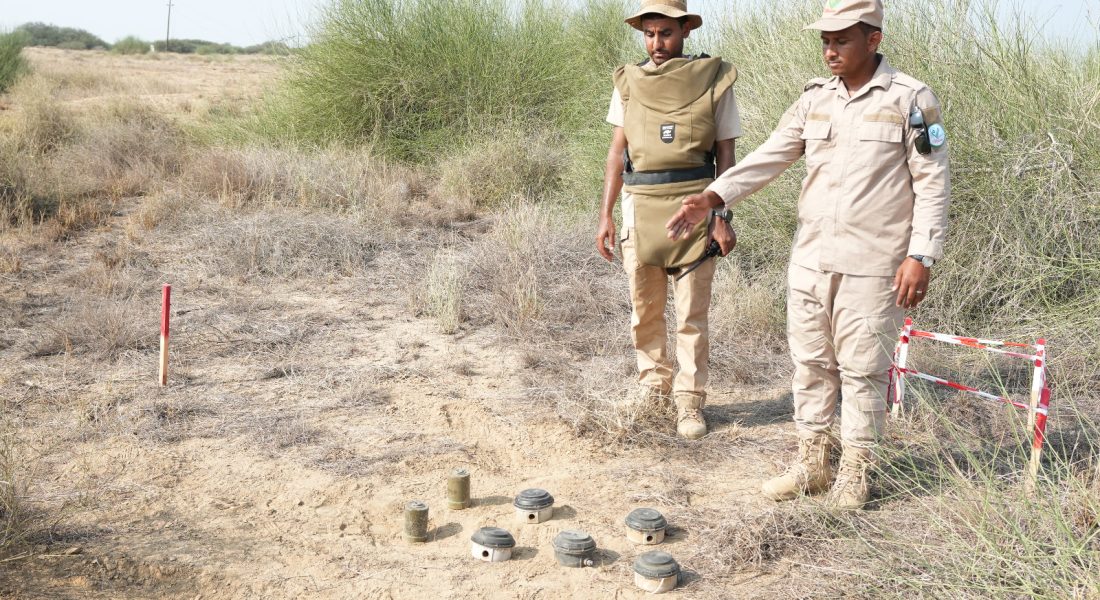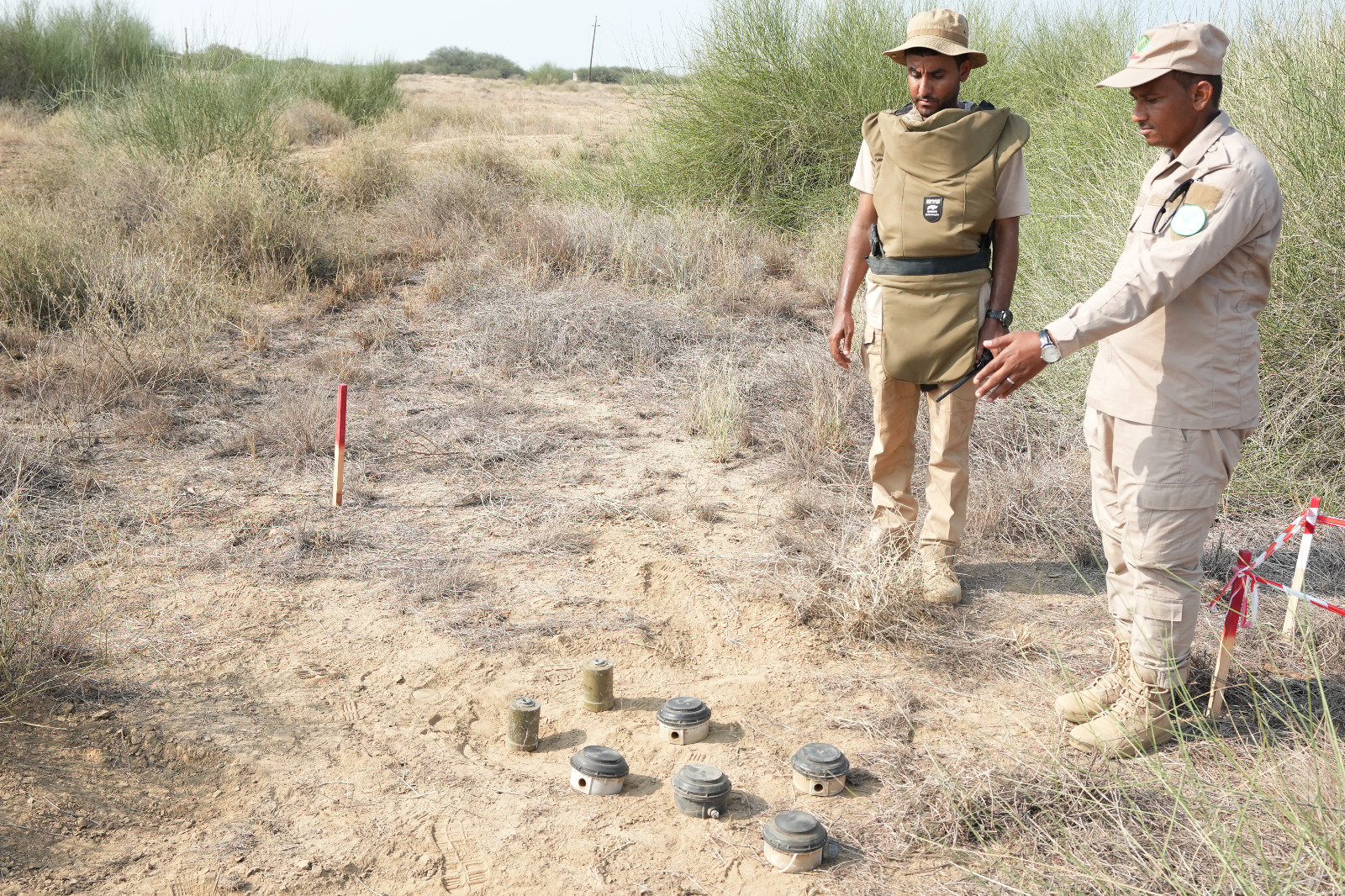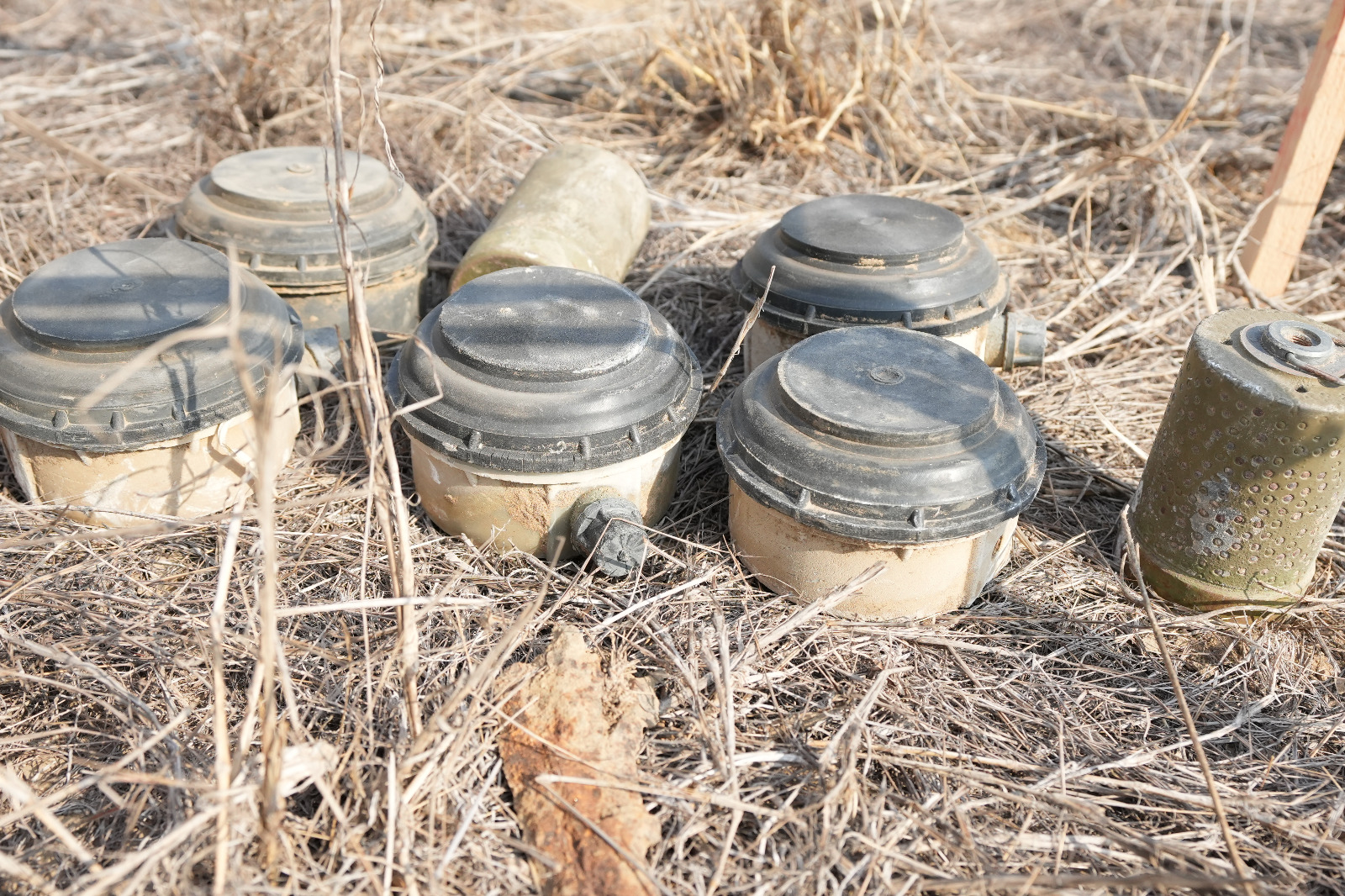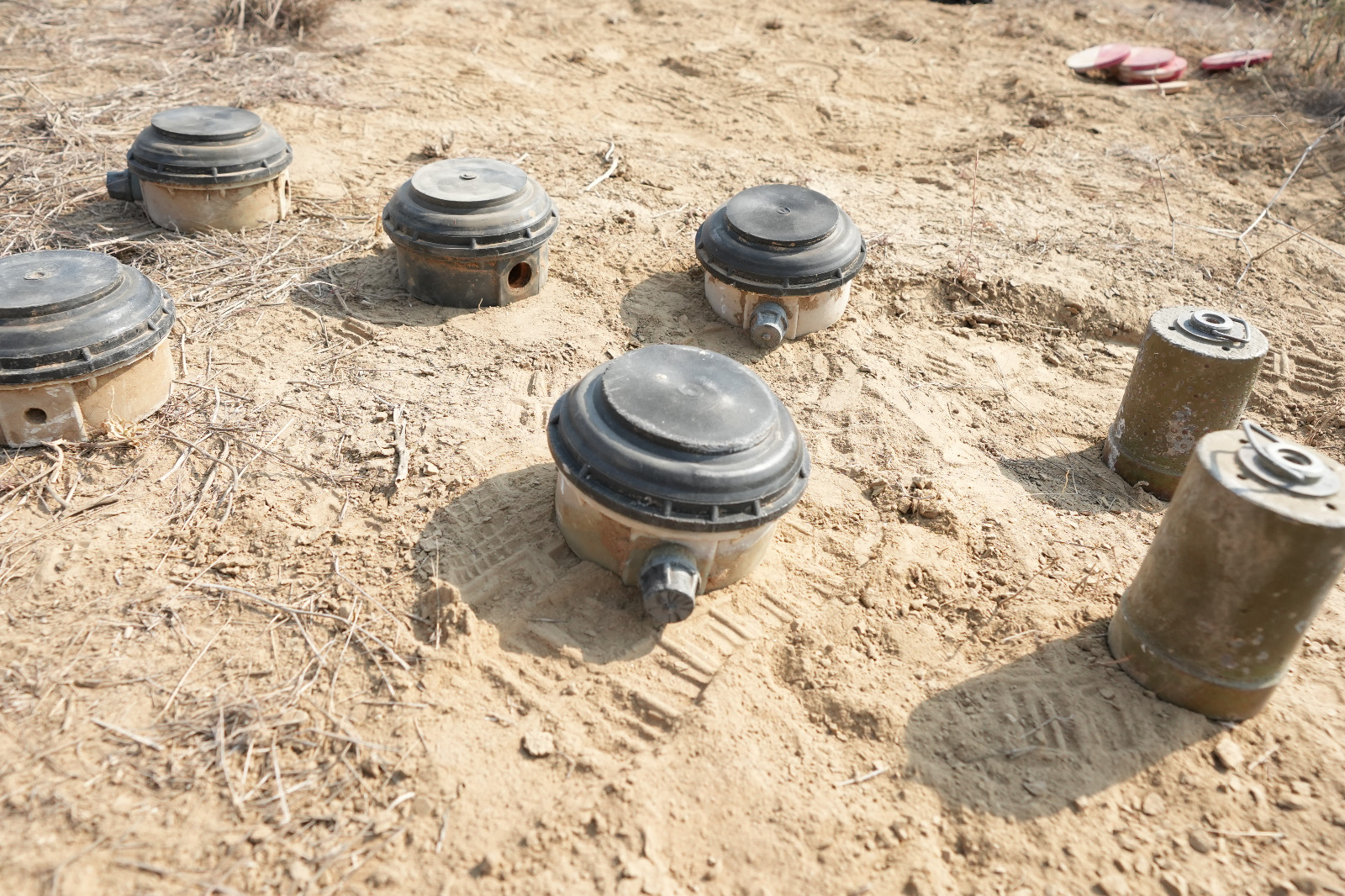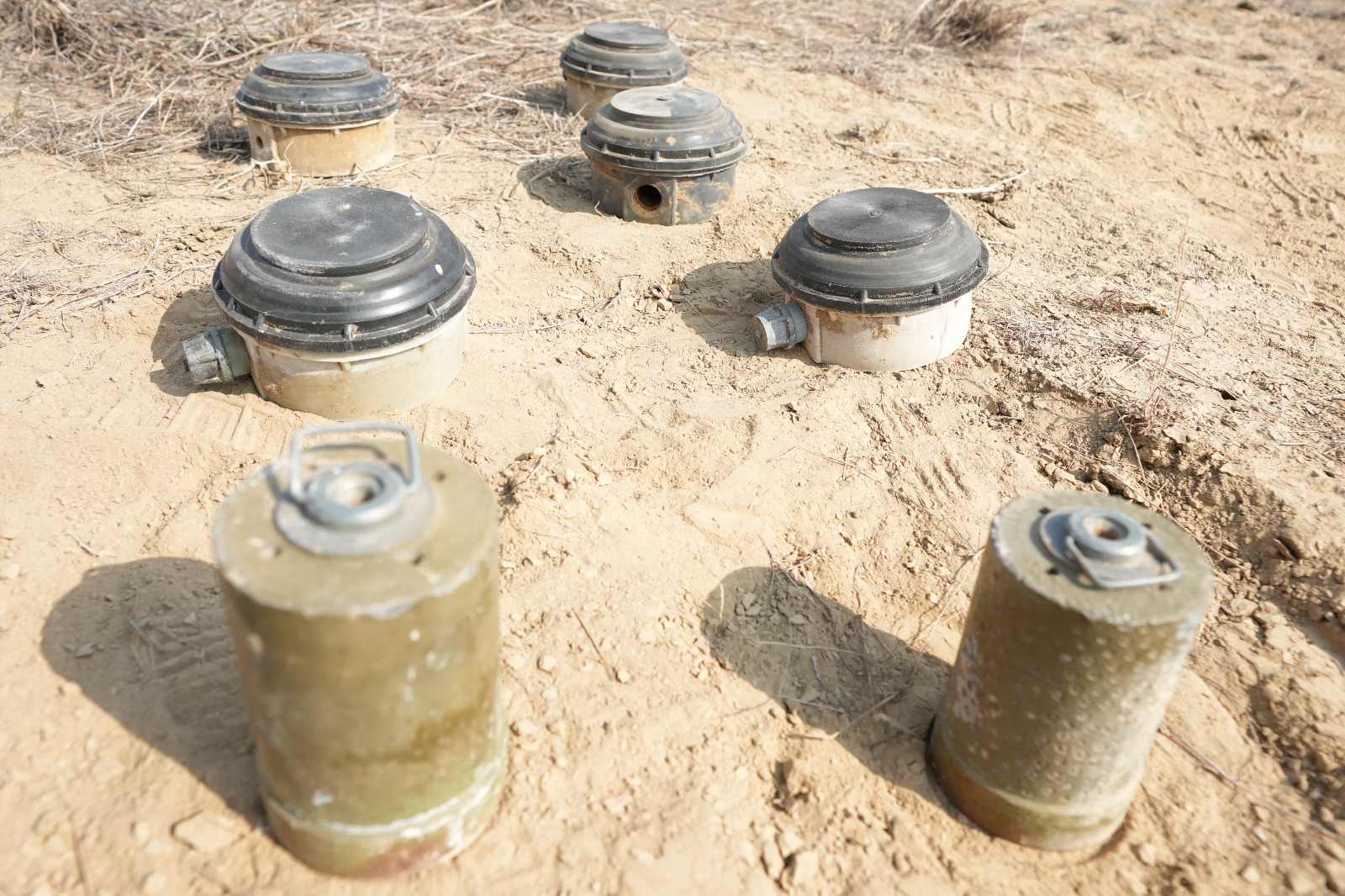Project Masam’s Demining Team 38 has successfully removed seven banned anti-personnel mines during a clearance operation in Midi District, northern Hajjah Governorate, as part of ongoing efforts to protect civilians, displaced families, and restore safety to affected communities.
Team Leader Engineer Saif Al-Mashmari said the operation was carried out near the village of Al-Makhzen, east of Midi – an area heavily contaminated with landmines and explosive devices planted by Houthi militias during the conflict. These mines have caused multiple civilian casualties and the loss of livestock over recent years.
Located on Yemen’s northwestern coast, Midi District was a frontline area during the conflict and remains one of Hajjah’s most mine-affected regions. Contamination continues to threaten residents’ safety and limit access to farmland and essential services.
Al-Mashmari reaffirmed his team’s commitment to continuing clearance operations across agricultural and residential areas. He noted that these efforts form part of the Saudi-funded Project Masam, which works to protect lives, support the return of displaced families, and help restore normal life in Yemen’s most affected regions.
Anti-personnel (AP) mines are banned under the 1997 Ottawa Convention, also known as the Mine Ban Treaty, because of their indiscriminate impact on civilians. These weapons continue to kill and injure long after conflicts end, hindering access to farmland, roads, and essential services.
Yemen is a signatory to the Ottawa Convention, committing to prohibit the use, production, and stockpiling of anti-personnel mines and to clear contaminated areas. Despite this, the use of landmines by the Houthis has continued to cause civilian casualties and obstruct recovery efforts across the country.

